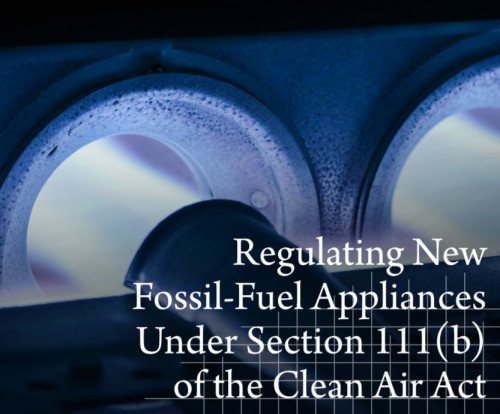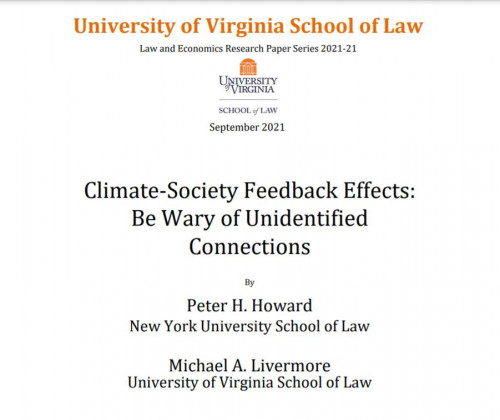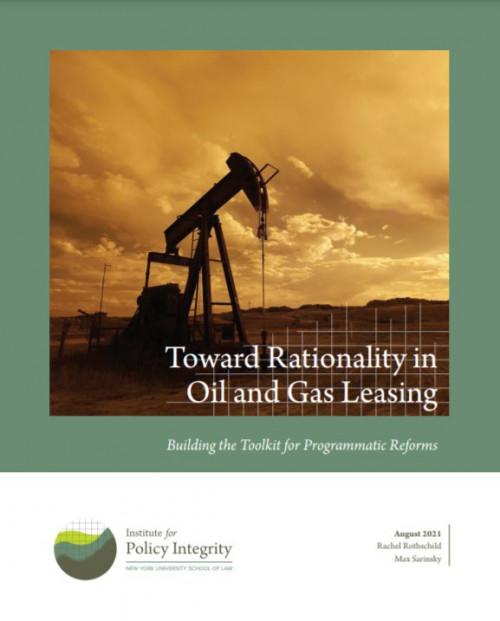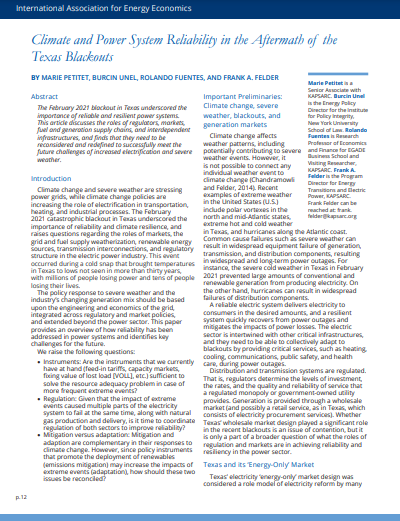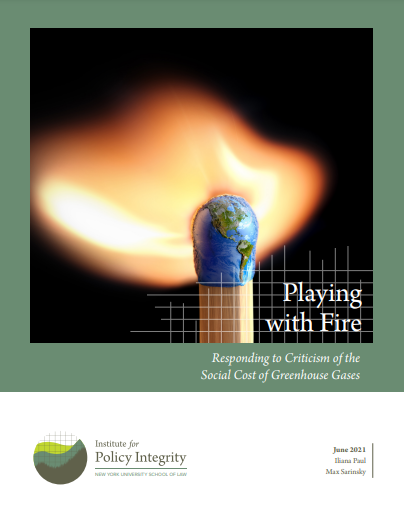-
Regulating New Fossil-Fuel Appliances Under Section 111(b) of the Clean Air Act
This report finds that EPA has authority under Section 111(b) of the Clean Air Act to set nationwide performance standards for new residential and commercial fossil-fuel appliances and that multiple means of reducing emissions from such appliances are adequately demonstrated, including the use of electric-heat-pump technology.
-
Climate-Society Feedback Effects
Be Wary of Unidentified Connections
To ensure policies are based on accurate predictions of climate impacts, it is critical to understand social-ecological system (SES) feedbacks, including how humans change the climate by reacting to a changing climate. Building on recent scholarly work on the topic, this article describes SES interactions and how they can be incorporated into climate policy tools such as the social cost of carbon. The article then proposes a research agenda for the identification, quantification, and integration of climate-society feedbacks into social-cost integrated assessment models (SC-IAMs).
-
Toward Rationality in Oil and Gas Leasing
Building the Toolkit for Programmatic Reforms
Leasing public lands and waters for fossil-fuel extraction drives a quarter of U.S. carbon dioxide emissions. Our new report offers analytic tools for federal leasing decisions to drive policies that maximize economic and environmental welfare—nationally and locally.
-
Climate and Power System Reliability in the Aftermath of the Texas Blackouts
The February 2021 blackout in Texas underscored the importance of reliable and resilient power systems. This article discusses the roles of regulators, markets, fuel and generation supply chains, and interdependent infrastructures, and finds that they need to be reconsidered and redefined to successfully meet the future challenges of increased electrification and severe weather
-
Playing with Fire
Responding to Criticism of the Social Cost of Greenhouse Gases
Federal agencies will need to offer considered and detailed responses to objections raised in the notice-and-comment processes for individual regulations or administrative actions that apply the Working Group’s social cost valuations. Given its expertise, the Working Group should consider providing such responses now, so that agencies can then incorporate them into future actions. This working paper offers a blueprint for those responses.
Viewing all publications in Climate and Energy Policy

